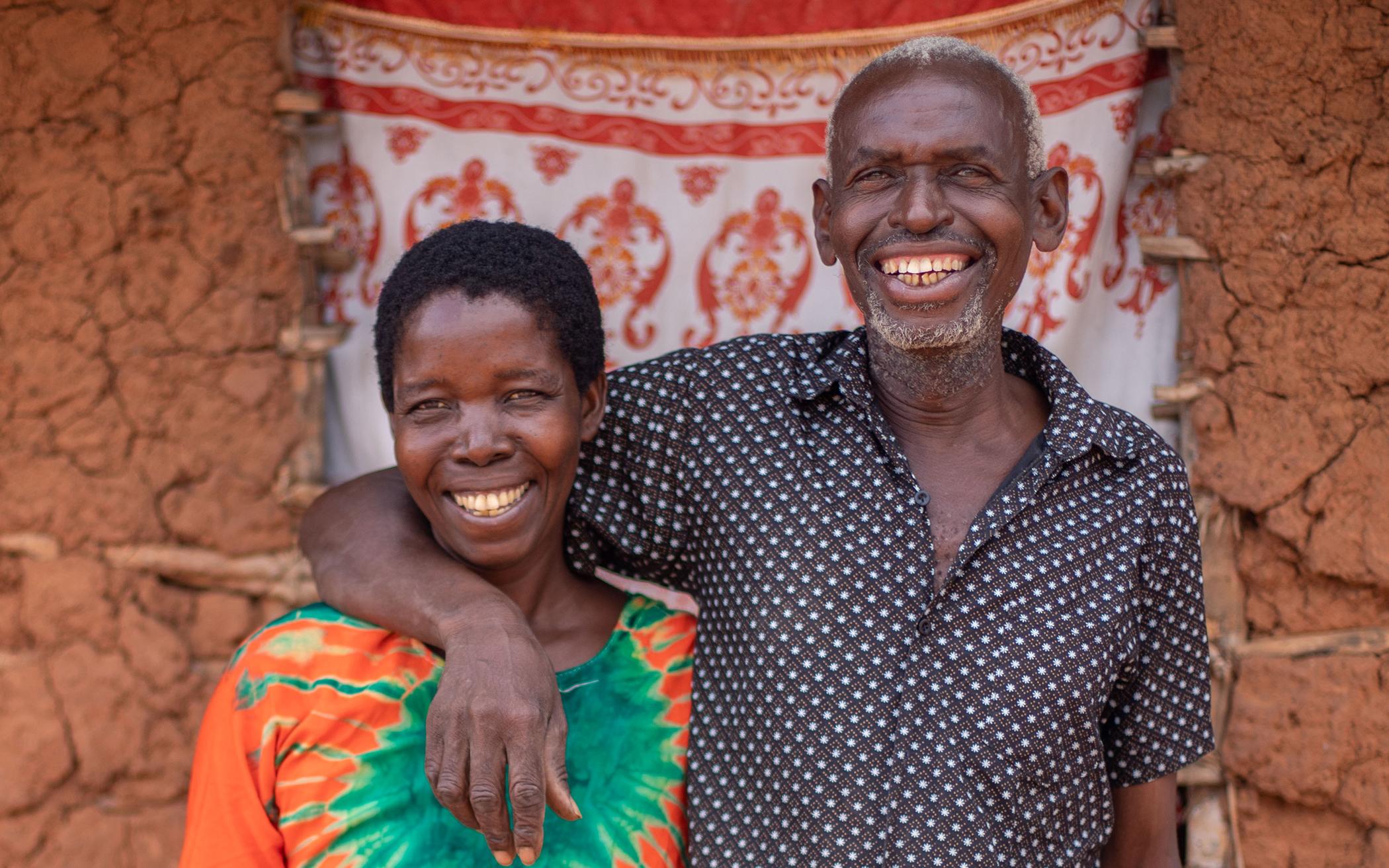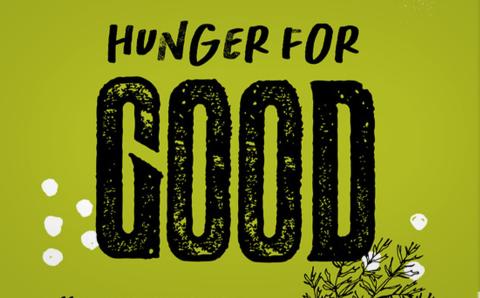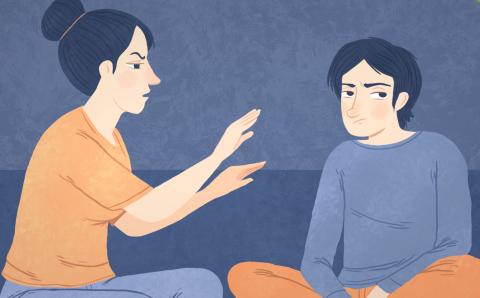Global food security is an ongoing issue that has become more complex with climate instability and COVID-19. World Renew offers hungry people opportunities to meet their needs sustainably. By addressing chronic hunger with climate-adaptive training in agriculture, kitchen gardening for family nutrition, and animal husbandry for additional income, increasing global food security is not only possible, but within reach.
Food is a basic human need. But when families and communities struggle with hunger, meeting that need can be anything but basic. Food security for subsistence farmers is a complex issue influenced by local circumstances, such as access to education and land ownership, as well as global concerns, such as climate variations and the COVID-19 pandemic.
World Renew, the disaster response and community development ministry of the Christian Reformed Church, is a faith-based organization that thinks globally and acts locally in 19 countries to equip women, men, and youth through training and community development programs to combat hunger and poverty.
Together with local partner organizations, World Renew works to increase family and community economic stability and sustainable agricultural practices.
World Renew focuses on strategies that promote sustainable change in local communities. Those strategies include training subsistence farmers in conservation agriculture, crop production and system diversification, irrigation, and integrated pest management. They also include creating local farming cooperatives, creating value-added items from produce, and improving relationships with local markets.
These specific strategies advance four main goals: conservation agriculture; leading farmers who train others in their communities; improving access to land, resources, and agricultural inputs such as soil improvers and animal feed; and empowering women and girls through access to and control of resources and shared decision making.
The training techniques are contextualized for and integrated into the larger socioeconomic systems in communities. This means, for example, that World Renew offers agriculture programs alongside savings and loan components that create more holistic development practices. It also means that leadership and development training is emphasized so that communities can advocate for themselves after the programs have ended.
Finally, this work includes peacebuilding and justice programs so that farmers can control their own seed supplies and so that their land rights are justly distributed to marginalized populations. To that end, World Renew works with Thrive to develop advocacy and mobilizing strategies to increase awareness of food security issues and encourage policy shifts.
Wansiewdor’s Story – India
In Patarkamh, India, World Renew partners with the North East India Commission on Relief and Development (NEICORD) in programs centered on health, income generation, and agriculture. The projects focus on forming savings groups and training constituents in revolving loans, financial management, bookkeeping, and improved rice and vegetable production.
Families in Patarkamh often struggle with lack of access to education, widespread poverty, and limited employment opportunities. Wansiewdor is a wife and mother whose family struggled but found hope through World Renew’s programs.
“In 2019, my husband was unable to earn enough income to support us,” Wansiewdor said. “I was trying to provide for my family when NEICORD started to offer classes in bookkeeping and agriculture.” She felt confident in the knowledge she gained in the training sessions, and she began to grow wheat, maize, pumpkin, and bananas to feed her family.
Wansiewdor found that growing produce at home instead of buying it at market saved the family money. She then took out a loan through the program and opened a tea stall and snack shop. With her earnings, she was able to purchase three piglets and hopes to expand her hog farm.
But Wansiewdor has even bigger goals. “Ultimately, my aim is to provide a quality education for my son and daughter because I did not have the chance to attend school,” she said.
With World Renew’s help, Wansiewdor is using her training, persistence, and dedication to end the cycle of hunger and poverty for herself and her children.
Kazitu’s Story - Kenya
In Kenya, climate variations and population growth have increased the country’s vulnerability to frequent and severe droughts. To help families adapt, World Renew is working with the Anglican Church of Kenya (ACK) to promote training for women throughout the country.
The programs that World Renew and ACK offer Kenyans in poor communities include food security, economic opportunities, community health, peace and justice, and disaster response.
Kazitu and her husband, Alfred, live in rural Kenya and are affected by drought and lack of economic opportunities. The family lives in a small village where they, like many of their neighbors, struggled to raise enough food and earn enough money to live despite their efforts at farming.
Through a World Renew cash-for-work program, Kazitu began to contribute to development projects in her community while earning income. When she joined the program, she chose to be paid in goats instead of cash.
Today, Kazitu and Alfred have a thriving goat herd that provides a stable income stream for their household. The couple has also learned to implement climate adaptation techniques on their farm to increase crop production so their family can benefit from a more nutritious and diverse diet. They have added chickens to their farm, and Kazitu is a member of a local savings and loan program where she has learned to manage and save their income.
“We are thankful for the opportunities we have had,” Kazitu said, “and we know the importance of using our opportunities to make a better life for our family.” Through World Renew’s programs, she added, they are being supported “until we stand up with both feet.”
Alvaro’s Story – Nicaragua
World Renew works in more than 80 communities in Nicaragua to change stories through programs such as agriculture and food storage, human trafficking prevention, human rights promotion, and domestic violence prevention.
In Nicaragua’s Dry Corridor, World Renew partners with the Center for Inter-Ecclesial Theological and Social Studies. Together the organizations offer learning opportunities to local men and women in sustainable agricultural methods. The training helps participants adapt their farming practices to changing rainfall patterns so that their livelihoods and families can thrive.
Alvaro José Chávez Cruz lives in El Jabillo, one of the communities that traditionally lacks adequate rainfall and more recently has been hit hard by climate change. With long droughts and reduced rainfall, subsistence farmers like Alvaro are even more vulnerable to hunger and poverty.
By improving their food security, access to clean water, and health through World Renew’s farmer field schools, Alvaro is transforming from struggling to prospering in the face of climate change. “I joined a farmer field school in my community through World Renew,” Alvaro said. “I learned ways to adapt to the changing rainy seasons using conservation agriculture methods. After getting good harvests for two years, I realized that I could consistently grow produce in raised beds to feed my family adequately.”
Alvaro has seen positive and abundant results from his efforts. He mixes manure from his farm animals directly into the soil before he transplants his crops. He also built a microirrigation system that uses a reservoir he fills himself from a nearby river.
With help from World Renew, Alvaro is increasing his family’s food security, improving their access to clean water, and improving their diet for better health and nutrition.
In the past 10 years World Renew has helped more than 630,000 people improve their food security worldwide. In the face of the devastating effects of climate variations around the globe, individuals affected by drought, famine, and increasingly intense and frequent tropical storms are being empowered to change their stories from distress to hope and from poverty to strength.
By engaging in training in sustainable agricultural practices, more and more families and communities around the world are changing their stories of hunger. They are learning “to stand on both feet.”
About the Author
Sarah Lahn, World Renew








